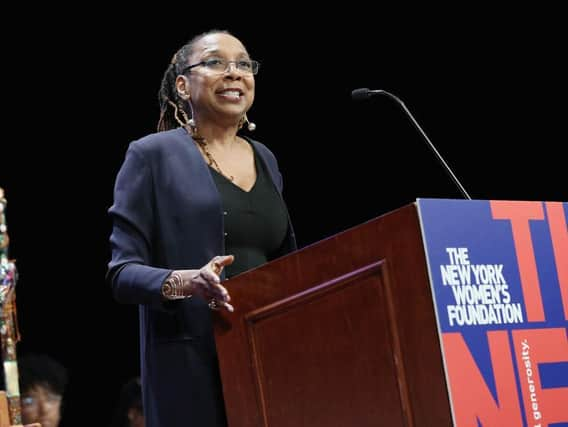'Intersectionality is a must'


At nine years old, I was diagnosed with a neurodivergent condition called Dyspraxia.
Whilst some may choose to not to see neurodiverse conditions as disabilities outright, for me, my Dyspraxia is something that still makes my life harder. Children born with it may be late to reach developmental milestones, including first steps and riding a bike. It is a developmental condition that creates barriers in activities that involve coordination and movement, very much physical movements like walking and jumping, but also speech and grip. It can also create internal strains with memory and thought processes.
Advertisement
Hide AdAdvertisement
Hide AdIt is not that people with Dyspraxia will not achieve these things but it will take them longer than someone without Dyspraxia. It is also not about intelligence. Today, I am doing my MA at a university. Additionally, I enjoy playing chess as I have been playing since I was eight (now 25 years old) and am also a big cricket player. I will never turn down a game of cricket.
In the neurodiverse family, Dyspraxia is lesser known than its colleagues, including autism and ADHD, but I assure you it is very real. As someone that is not racialised as White too, school showed me multiple sites of oppression that can come with being neurodiverse in a society that also functions on racism.
With these two things working together, ablism and racism, we can see an intersectional violence at play. Intersectionality – where multiple forms of inequality and disadvantage can be experienced by people at the same time. Intersectionality gives us a way of seeing and thought that is not understood through normative ways of thinking about social justice. E.g. in the anti-racism context, this would mean practicing an anti-racism that is also trans-inclusive.
With students and staff in education that come from a plethora of different backgrounds, intersectionality is wide-reaching. In knowing this, it troubles me that many of us still simultaneously approach problems of inequality and privilege through singular ways of thinking. Human beings are not binary and lots of us walk through the world wearing many different hats. Whilst society racialises me as Black, my Dyspraxia gives me another worldview where that experience can amplify encounters with racism as it compounds the racist stereotypes that already exist in society.
Advertisement
Hide AdAdvertisement
Hide AdSocial markers, including disability, can bring more layers to social justice causes like anti-racism. Intersectionality was first coined by UCLA Professor Kimberle Crenshaw in 1989 to address the specific experiences of Black women in the US. Today, we would call that experience misogynoir. Intersectionality has grown a lot since then, and has gone on to include all types of societal labels, including sexuality, immigrant status, culture and more. When we see how most of us inhabit more than one social marker, we then can understand how we can also exist at multiple sites of violence, both the overt and the institutional.
In understanding how we can have intersecting experiences, perhaps education providers can then more appropriately help children and young people when they report bullying. That whilst a child may be experiencing racism at school, that bullying may also show evidence that racism for example, can also have class-based and gendered components too.
When we see the individual experiences, this can be an indicator of how individuals fit into wider structural and institutional contexts, both as the oppressor or the oppressed. In the context of children and young people, intersectionality can be used to analyse the wide spectrum of childhood and lived identities that exist.
As a Black and neurodivergent writer, I recognise the usefulness that intersectionality gives me in framing my own story both now and historically. And in the words of Prof. Kimberle Crenshaw, “to win the coming policy battles, intersectionality must be embraced not as a buzzword, but as a political necessity.”
Tré Ventour is a race and black history educator, writer-poet, speaker and curator
Comment Guidelines
National World encourages reader discussion on our stories. User feedback, insights and back-and-forth exchanges add a rich layer of context to reporting. Please review our Community Guidelines before commenting.